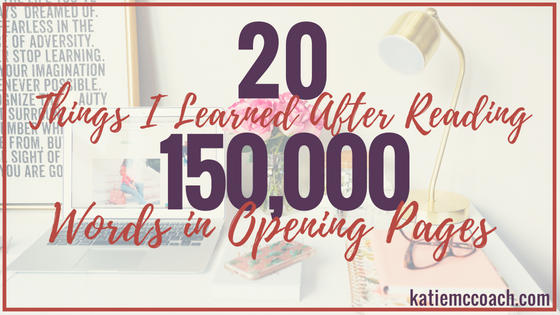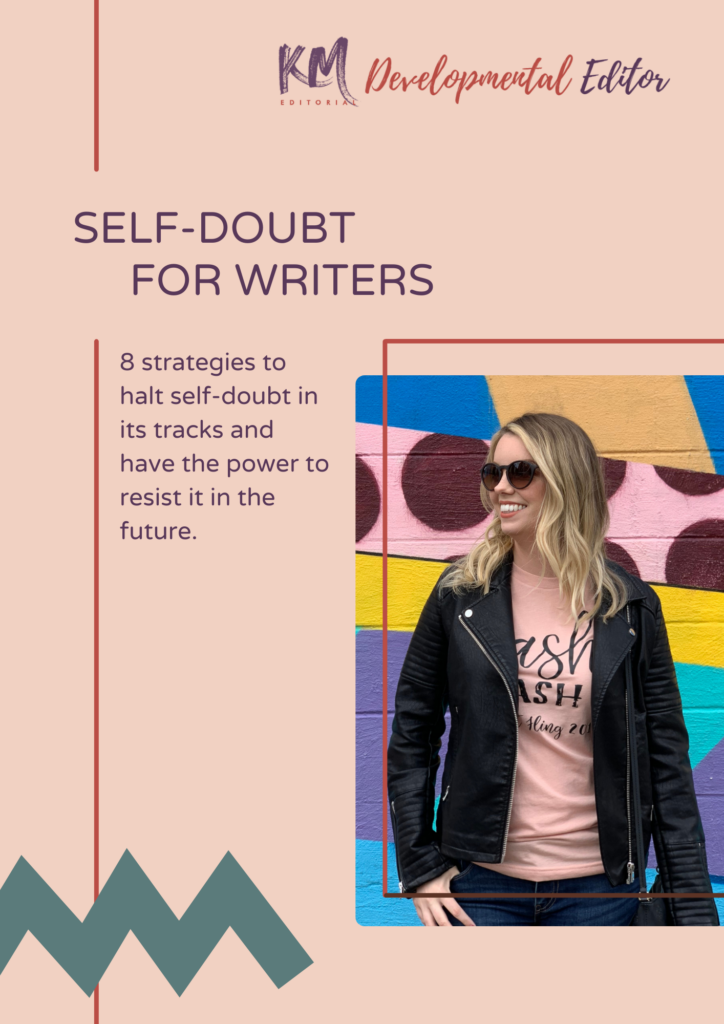Recently on the blog we discussed 15 things I learned after reading 100 query letters during the RevPit contest. You can read the article here.
During that submission period for the RevPit contest, I not only read 100 query letters, but I also read the first five pages of 100 submissions. That’s 150,000 words in opening pages in one week. And I’m not even an agent. Can you imagine the amount of words they read every week, every month? If you’ve been lucky enough to hook an agent through your query letter, then you know that a good query only opens the front door, but having opening pages that live up to it—or go beyond it—is the key to being invited in.
During my reading of 150,000 words in opening pages, I’ve come across a few patterns, a few ways to stand out, and a few reasons an agent may give an automatic no.
I want to share those tips with you today!
- Strong/unique character voice can start as soon as line one.
- Starting with a first line that is only there to hook a reader, but has no pay off, is a cheap start.
- Try not to begin with these cliché openers: Character is drunk, hungover, just waking up, or just starting their day. Also, avoid describing the weather.
- Avoid an opener that is too dialogue heavy without context.
- Make sure pages at least give vibe or tone of story. If it’s supernatural, let us get inklings of this. If suspense/thriller, we need that underlying tone from the beginning.
- Give the scene a why. A scene that has no direction or isn’t contributing to moving the story forward is not meant to be included in the story.
- Voice is everything, truly. It can actually keep a reader even if nothing is happening.
- I mentioned last month how reader confusion is the death of a query—same applies to opening pages. Make sure it all makes sense and flows in a logical manner.
- Don’t introduce so many elements or characters that readers can’t connect.
- Ground the readers in the scene: make it clear where they are, when they are, and why.
- Starting, then backing up to earlier in the day or a day before or even five minutes ago is a no no. If it’s so important that it’s mentioned, why didn’t the story begin then?
- Having an MC with a clear starting goal makes the reader more willing to stick around.
- Deep POV (in first person or third person) tends to create a stronger connection between character and reader.
- Being too predictive is boring. Don’t begin by giving us anticipation on what will/can happen next, then have that thing actually happen. Use the chance to shock readers a bit, make them alert.
- Avoid giving too much [backstory, exposition, details, description, dialogue] too soon. Allow it to come out when we need it, not just because.
- Avoid slow starts.
- If you must end your sample at a certain page number, end on as much of a hook as possible so the reader needs to keep reading.
- Read initial pages aloud, especially the dialogue. If you’re bored, the reader is bored.
- I said this before and I’ll say it again: Personal preference is a real thing. The best writing may just not be what that person is looking for at the time.
- Rejection doesn’t mean you should give up.
If you can, I highly recommend doing this exercise yourself. Go to the bookstore, or read opening pages on Amazon. Take notes. What made you want to keep reading? When did you decide to stop reading? Why? What annoyed you? What intrigued you? What patterns do you see? Report back! I’d love to add your responses to an updated version of this post in the future.
Find me on Twitter and let me know what you thought of this article: @katiemccoach Let’s grow #yourbeststory.
When you sign up for the KM Editorial monthly newsletter you’ll receive a free downloadable Guide to Getting Published.



 Download your free copy of these 8 tried-and-true strategies to stop self-doubt and imposter syndrome as a writer. And, build the power to resist it in the future.
Download your free copy of these 8 tried-and-true strategies to stop self-doubt and imposter syndrome as a writer. And, build the power to resist it in the future.
useful tips I wish I’d read before sending off my story to an international competition recently. I’m sure there’ll be another time…
Hi Cathy,
You’ll definitely have more chances to send your work off in contests! I wish you the best in this one!